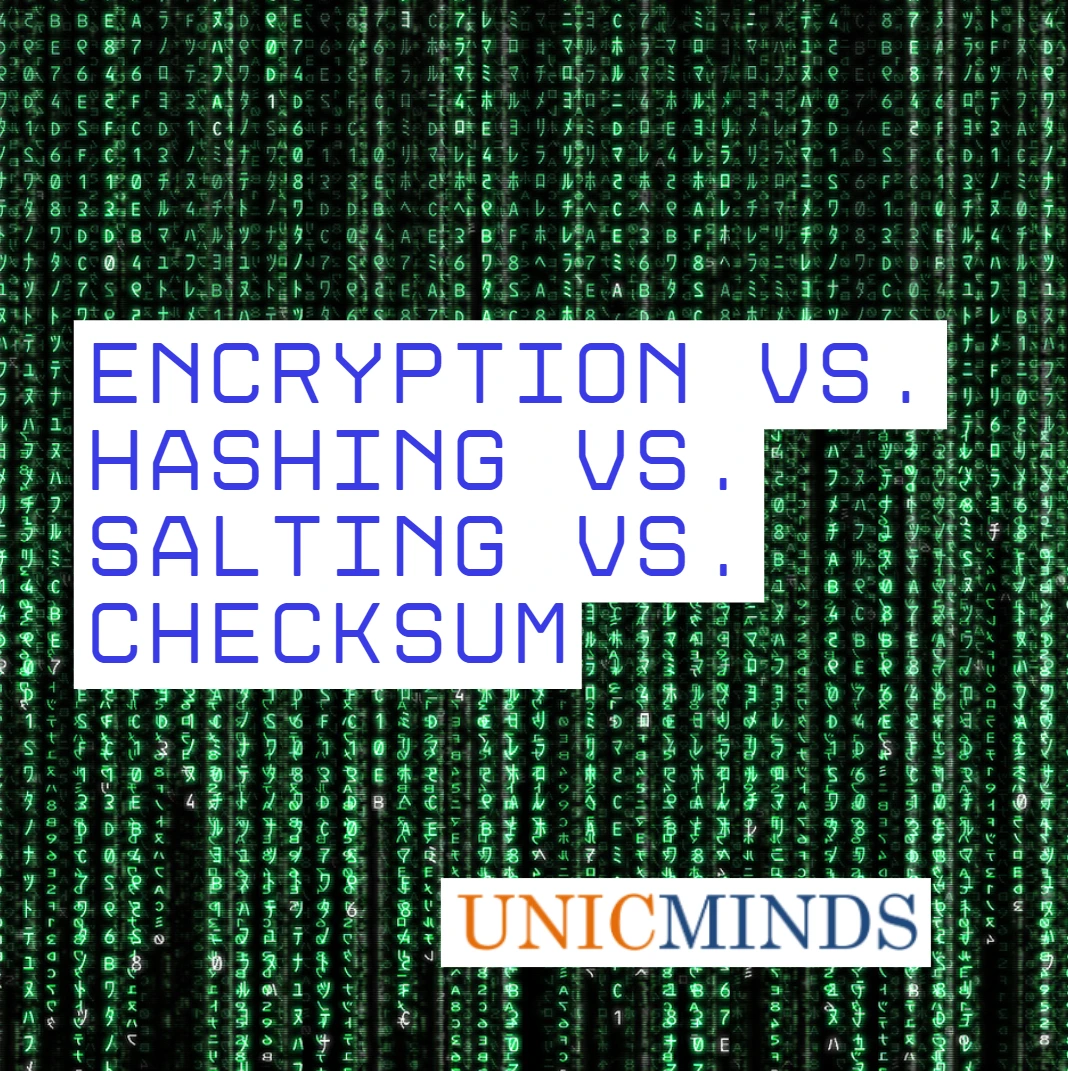Encryption
Encryption converts knowledge into an unreadable format, making certain solely these with the suitable decryption key can entry it. It’s essential for securing knowledge throughout switch (e.g., over the web) and storage (e.g., on servers). With out the decryption key, encrypted knowledge stays inaccessible, defending delicate data.
Symmetric Encryption:
- Makes use of the identical key for each encryption and decryption
- Sooner and extra environment friendly for big knowledge transfers
- Requires safe sharing of the important thing between trusted events
- Used for securing communication over VPNs, encrypting recordsdata, or defending databases
- Common algorithms: AES, DES, Triple DES (3DES), and Blowfish
Uneven Encryption:
- Makes use of two keys—a public key (to encrypt knowledge) and a non-public key (to decrypt knowledge)
- Safer because it eliminates the necessity to share secret keys
- Effectively-suited for smaller knowledge exchanges and digital signatures, providing authentication alongside encryption
- Frequent algorithms embody RSA, ECC, and Digital Signature Algorithm (DSA)
Block and Stream Ciphers:
- Block Ciphers (e.g., AES): Encrypt knowledge in fastened blocks, making it extremely safe for saved knowledge or HTTPS communications.
- Stream Ciphers (e.g., RC4): Encrypt knowledge little by little, appropriate for real-time knowledge like dwell video or safe messaging.
Hashing
Hashing is a one-way course of that converts enter knowledge right into a fixed-length string (hash). It’s generally used to confirm knowledge integrity, detect tampering, and securely retailer passwords. In contrast to encryption, hashes can’t be reversed to disclose the unique knowledge.
- MD5: Quick however outdated because of weaknesses towards collision assaults (completely different inputs producing the identical hash).
- SHA-1: Produces 160-bit hashes; nonetheless, it’s deprecated because of safety vulnerabilities.
- SHA-256 (a part of SHA-2): A safer and widely-used algorithm splendid for blockchain, SSL certificates, and knowledge storage.
- SHA-3: Delivers enhanced safety primarily based on the Keccak algorithm, providing a sturdy selection for IoT and post-quantum encryption techniques.
- Bcrypt: Consists of built-in salting and adapts to computational advances, making it a go-to selection for password storage.
- Argon: A winner of the Password Hashing Competitors, affords superior customization and resistance to cracking makes an attempt.
How is Hashing completely different from Checksum?
Hashing and Checksum have some similarities for positive. Checksum is used to logically embody all bits of knowledge that’s being transferred to make sure the unique knowledge isn’t corrupted unintentionally. Checksum is deriving a brief piece of knowledge from an extended kind knowledge.
Checksum isn’t designed to be a technique. With some motivation, checksum may be reversed by folks having the intention. Hashing, then again, is designed to be computationally tough to be reversed. Hashing is primarily designed to create a novel digital thumbprint of the info and is majorly utilized in password safety. Checksum is designed solely to determine the integrity of knowledge throughout transmission to make sure there is no such thing as a transmission error.
The issue with checksums are: checksums use XORing of 1s and 0s or it counts the variety of 1s and 0s or related methods. The problem is when you flip two bits of 0 to 1 and 1 to 0, then the checksum would nonetheless stay the identical. The purpose is that it’s almost at all times attainable to change the info and preserve the checksum the identical. And, checksums have a excessive probability of collision. So, when you don’t need collision, then hashes are your finest wager though hashes too have collisions.
Salting the Hash
A method of including a random string of letters and numbers (known as salt) to the password itself. This random string ought to be saved in a separate database and retrieved and added to the password earlier than it’s hashed. By salting the hash, one can make sure that customers with the identical password have completely different hashes, making it tough for hackers to make use of precomputed tables (instance: rainbow tables) to crack the hashes.
Can Encrypted Knowledge be Hashed?
Sure, encrypted knowledge may be hashed. However, why is it required? It’s to test if the encrypted knowledge is corrupted or modified in any method. Nevertheless, it’s not usually that encrypted knowledge is hashed as a result of encryption itself affords robust knowledge safety.
Hope that is helpful, thanks.
You might prefer to learn: The Arithmetic of Sea Shells, Cybersecurity Legal guidelines & Regulating Our bodies, & Monitor & Injection modes in WiFi Adapters



